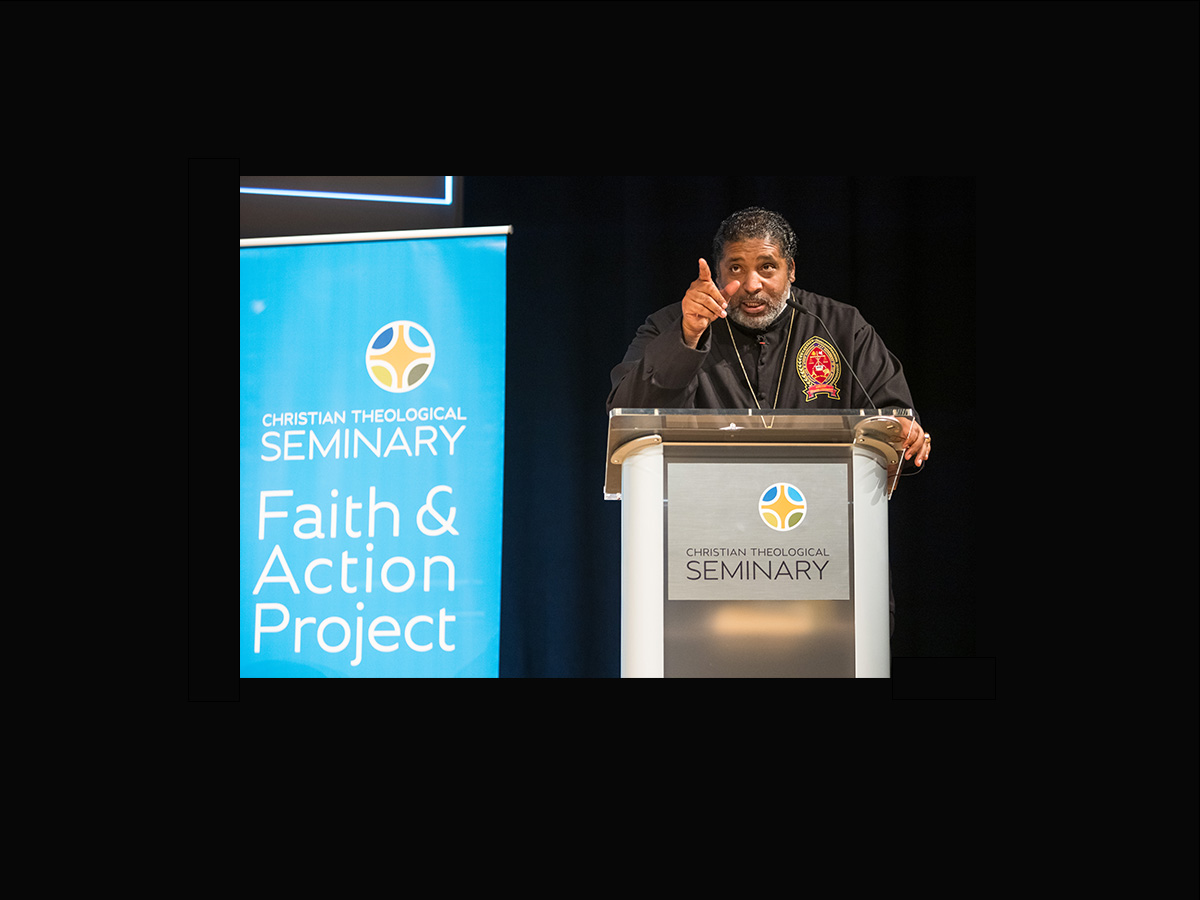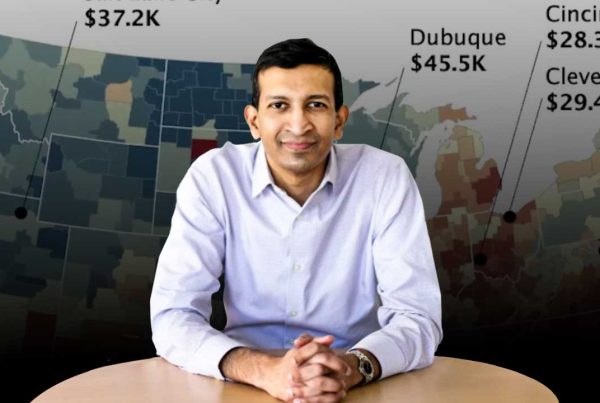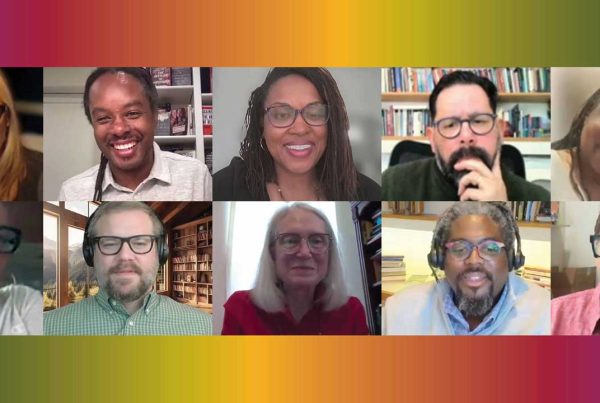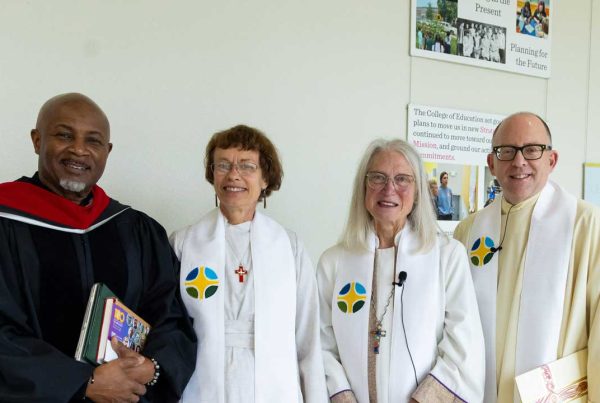When the Rev. Dr. William J. Barber II addressed the crowd assembled in the Shelton Auditorium for the seventh annual Faith & Action Fall Event, he challenged everyone to engage in the fight against poverty. As Co-Chair of the Poor People’s Campaign, he has helped to mobilize millions of people in opposition to the injustices inherent in poverty and he has been asked to speak in pulpits and halls of power around the world, from The Vatican to the White House to North Carolina’s Greenleaf Christian Church, where he serves as pastor. Focusing much of his talk on the Book of Ezekiel, the Rev. Dr. Barber called for action and strong leadership. We gleaned the following lessons from his talk.
- Context matters. The Rev. Dr. Barber started his talk by presenting sobering statistics about poverty, highlighting the fact that 43% of the nation and 52% of children can be classified as poor or low wealth. Accepting this context, which he referred to as the Sitz im Leben (German for “Setting in life”), is essential, he said, for addressing poverty.
- Scarcity is not the problem. The persistent “Lie of Scarcity” must be drowned out. We live in a world of plenty, but too much is held by the wealthy or corporate interests. There is injustice inherent in that imbalance.
- We know what to do. The social supports put into place during the pandemic suggest that we do know how to address poverty, the Rev. Dr. Barber said, as they reduced the number of people classified as poor or low wealth from 140 million to 112 million. But then we took those supports away. “There is nothing more cruel than lifting people up and letting them fall again,” he added.
- Proximity is essential. Drawing from the Book of Ezekiel, the Rev. Dr. Barber said people who want to walk with and serve the poor must “lie among the people” to gain credibility. “You cannot stay away from the communities that are broken,” he said. “You cannot do this work from afar.” Creating this connection will also strengthen the fight. “There is power among people who fight every day and still have hope in what could be,” he said.
- Distractions must be resisted. Too often, the fight against poverty gets confused by other issues. “… they tell us the problem is because of divorce, the problem is women having children out of wedlock, the problem is gay people, the problem is trans people … All of those are distractions,” that get in the way of making progress.
- Great strides are needed…baby steps aren’t enough. We can’t pat ourselves on the back for baby steps when great strides are what is needed. We must fight for substantive change, seeking for temporary supports but concrete solutions such as a $15 per hour minimum wage and healthcare for all.
- We must go where God is leading us. God is with us here and God is waiting for us where God wants us to go. “I know a God who can take a black cow that eats green grass and make white milk,” the Rev. Dr. Barber said. With a God like that, what isn’t possible if we will only follow God’s lead?
- We need prophetic voices. We need bold vocal leadership from our nation’s pulpits. “Anyone who is preaching today and not addressing poverty is practicing malpractice or worse,” the Rev. Dr. Barber said. He called for a collective moral conscience that would drive us all to speak out on behalf of the poor in pursuit of justice.
- Poverty must be an election issue. When candidates run for office, they often hold issue-specific debates … but poverty is never one of those featured issues. “Seven people died from vaping and we had a white house conference and congressional hearings,” the Rev. Dr. Barber said. “Seven hundred people die a day from poverty, and we’ve not even had one presidential debate on poverty.”
- We need a dream and an AGENDA. Rev. Dr. Martin Luther King, Jr. had both a dream and an agenda when he gathered people in 1963 in Washington. The focus of the march was for Jobs and Freedom. That agenda would have made a difference and it still can. We will need a community with a moral conscience saying poverty is unacceptable. We must be provoked to compassion. We must be moved to action.
You can watch full video of the Fall Event and Rev. Dr. Barber’s message below:






